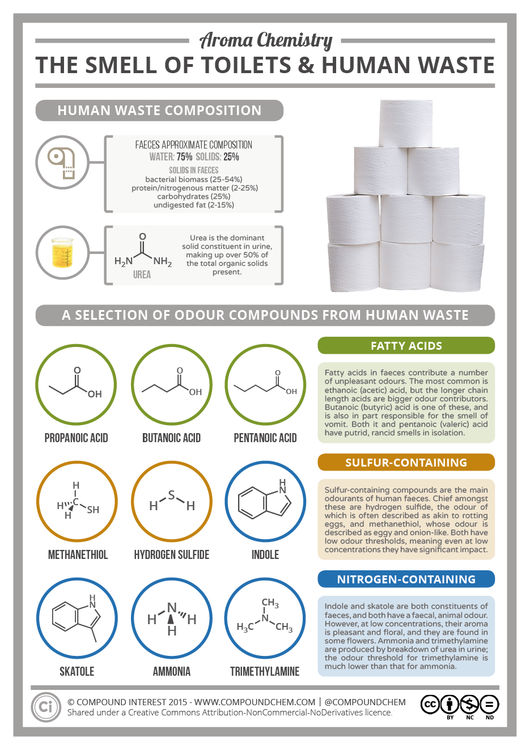© Compound InterestThe Chemistry of the Smell of Toilets & Human Waste
Today’s post marks a slight detour for the aroma chemistry series. So far, we’ve look mainly at pleasant aromas, but today we turn to a major malodour: that of toilets, and, more specifically, human waste. It might seem like something of a childish subject, but there are some interesting chemical compounds present in the materials we expel from our bodies. There are are also reasons to examine these compounds, as we’ll discover.
First, we should briefly discuss what makes up faeces and urine. Both consist primarily of water, with the exact water content being variable. For faeces, the remainder is a mix of bacterial biomass from the gut, proteins and nitrogen-containing compounds, and other undigested matter. Urine contains a variety of dissolved organic solids, with urea being the major constituent of these, at over 50%. Urea is a colourless and odourless solid, which our body uses to dispose of ammonia, which is itself produced as a result of the metabolism of proteins.







